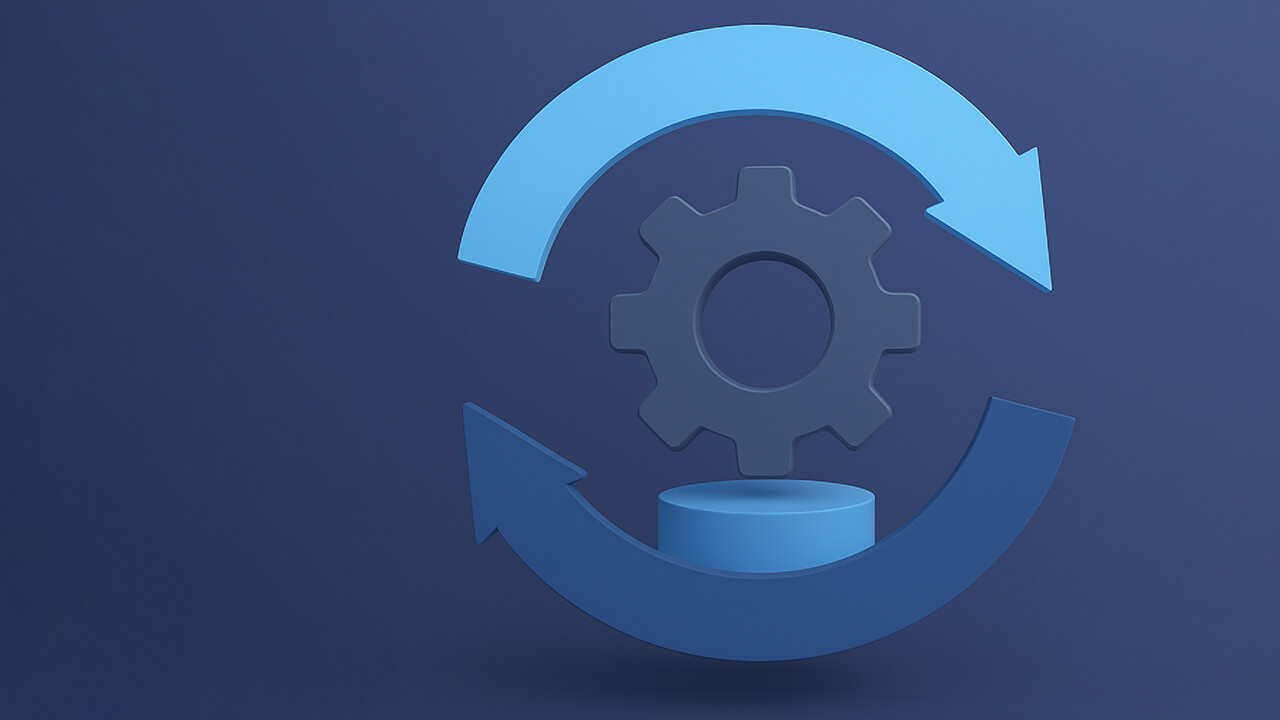The evolution of modern ERPs: From traditional to flexible

3 min read
ERP systems, from the beginning of their operation, have been the “backbone” of businesses. Their purpose, from their very first appearance, was to optimize production processes, such as the production line, inventory management and supply chain. In this way, the control and management of resources is done in a much simpler way.
However, from their first appearance until today, their course has not remained stagnant but has been constantly evolving. Today, classic, traditional ERPs are adapting to the needs of people and the market more than ever, having people and results as a priority.
The ERP transition to human-centric
Traditional ERPs aimed to more efficiently manage processes, such as production, inventory management, and supply chain. They were designed to enhance standardization and control.
However, they often did not meet the needs of businesses that rely on people and their services, such as education, professional services, and the public sector.
The need for greater adaptability brought about flexible, human-centric ERPs. These systems move away from an exclusive orientation to processes and incorporate features that prioritize people, projects, and results.
With an emphasis on user experience, personalization, and adaptability, modern ERPs now meet the needs of service organizations and beyond.
How did ERPs transition to human-centric?
To make the change from traditional ERP systems to modern human-centric ones, a new technological base was required. The solution and technological base was the Cloud.
Through the Cloud, ERP systems managed to escape the limitations of traditional ERPs and offer more benefits.
The benefits that the Cloud offered to ERP systems
The transition to the Cloud was a turning point for ERP, because it provided solutions to limitations. Some of the key problems that the Cloud solved are:
- The flexibility and scalability it provided allowed each business to adapt its system to its needs without time-consuming and costly changes.
- Significantly reduced overall costs, eliminating the need for heavy infrastructure and limiting maintenance costs.
- Enabled access to ERP platforms from anywhere in real time, making work immediate and collaborative.
- Enhanced security with continuous updates and strict data protection standards.
- Created the right ground for innovation, preparing ERPs to integrate new technologies such as Artificial Intelligence and automation.
What is the role of Artificial Intelligence and data in ERP?
The next step is to integrate Artificial Intelligence into data management and utilization in ERP systems.
ERP systems record transactions, but it is important that they also transform data into information that will be critical for decision-making.
By integrating AI tools into modern ERP systems, it will be possible to predict trends, automate time-consuming processes and enhance strategic thinking within an organization.
One such automated process is the automatic entry of documents, but also the use of virtual assistants that answer questions in real time.
Data is at the heart of this evolution. The better organized and reliable it is, the more effectively Artificial Intelligence can operate, giving businesses a competitive advantage and faster access to information that makes a difference.
What is the future of ERP systems?
Given that from traditional ERP systems, which were focused on processes, we now have modern human-centric systems that operate on a Cloud foundation, we can understand that Artificial Intelligence will also pave the way for new changes.
We may not know exactly what they will be, but we already know that they will combine flexibility, innovation and user experience, giving businesses a competitive advantage and strategic clarity. ERPs are no longer just management tools, but strategic partners that evolve with businesses.
Frequently Asked Questions about the evolution of ERP systems
What does it mean to transition from traditional ERP to human-centric ERP?
ERP systems were designed to optimize production processes, such as assembly lines, inventory management, and supply chain management. However, for service-based businesses and organizations, knowledge, talent, and experience are critical, not so much physical assets. This transition marks a shift from rigid, product-centric practices to flexible platforms that focus on the people who use them and their needs. This means that modern ERP systems must now reflect values such as flexibility, expertise, and personalization.
What is the role of the Cloud in this ERP transformation?
Cloud is a fundamental foundation for ERP optimization and innovation. Scalability, flexibility, and lower total cost of ownership make Cloud the first choice for digital transformation. Its approach to moving to the Cloud at the speed of the customer enables organizations to move forward with confidence, with programs that ensure a strategic and seamless transition.
How is Artificial Intelligence used in ERP systems?
Artificial Intelligence is being integrated into ERPs to automate processes, predict trends, improve decision-making, and offer personalized experiences to users.
What are the key benefits of AI in ERP?
AI reduces time on time-consuming tasks, enhances data accuracy, provides better insight into the future with predictions, and improves a business's strategic agility.
What role does business data play in the operation of AI in ERP?
Artificial Intelligence in ERP systems cannot operate in isolation as its quality directly depends on the data it has at its disposal. Clean, organized and reliable data is the basis for algorithms that work properly and produce results with real value. When data is incomplete or disconnected, predictions and automations lose their accuracy. On the contrary, when there is a single and consistent database, AI can analyze trends more accurately, automate critical processes and offer useful knowledge in real time.
Thus, data is not just “fuel” for Artificial Intelligence, but the determining factor that makes sophisticated ERP systems truly intelligent and strategic tools for a business.
